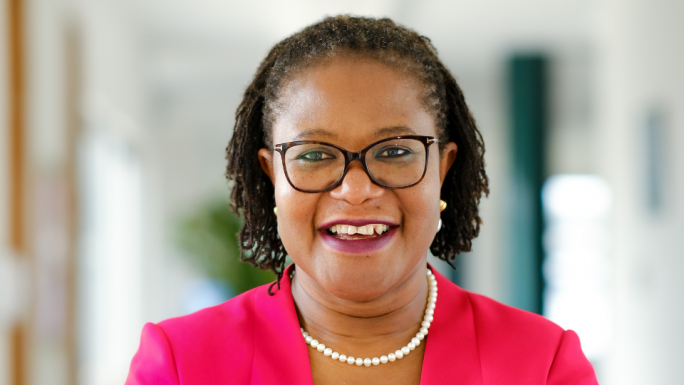Interview with Prof Olayinka David-West: If we don’t start thinking about fairness in the platform economy, we will be dehumanising the Nigerian worker

Olayinka David-West is a Professor of Information Systems at Lagos Business School with more than three decades experience in the IT and financial services industry and is a passionate advocate for digital transformation and inclusive finance. Professor Olayinka is also the Principal Investigator for Fairwork Nigeria.
Her first foray into platforms was in 2016 with a survey of platforms operating in sub-Saharan Africa. Together with the Centre for Global Enterprises, they ran an online course on Platform Strategy. About 500 students from different parts of Africa participated in the two runs of the five-day course. Some topics discussed were the dynamics of platforms, two sided markets, platform governance, structure and marketing of platforms, etc. Her recent work with platforms is focused on how platforms are enablers to access to finance, platforms as a source of providing employment, platforms from a gender lens, and platforms in the area of mobility.
On the contribution that the five Fairwork principles can make to the platform landscape in Nigeria, Olayinka noted that the platform landscape is not exactly regulated by the local labour law. This is due to the use of informal or casual work by platforms, which means that workers are not employees but are independent contractors or provided by third party contractors. Besides ensuring that the pay is above the minimum wage and is sufficient as a living wage, the law of Nigeria provides for a minimum of benefits for workers, such as pension, health insurance, etc. Additionally, there is the question about the conditions in which platform work is performed? Do these workers have a right to be listened to collectively by the platform?
Nigeria is in a peculiar situation. High unemployment rate means that a lot of people are out of work and people are struggling to put food on the table. For such people, half a loaf is better than none. They take whatever terms and conditions are offered to them. But this does not make the terms and conditions fair. Are the organizations protecting the dignity of human beings who work for/with them?
In the area of fair management, we want to see equitable and just conditions of service. Are the people managed in a manner that gives them a sense of belonging and equality? Does the platform address the issues that affect women workers through the right gender lens? Are there non-discriminatory policies in the organization? The Fairwork principles want to help guide and ensure that we are creating a responsible workforce and responsible workers in the platform economy. Every unjust and unfair action contributes to demeaning the Nigerian worker not just at home but outside the country.
The Fairwork Pledge
Fairwork will be reaching out to a number of organizations outside the platform landscape in Nigeria encouraging them to take part on the Fairwork pledge. The pledge is another way of building awareness around what fair work and equity should look like in the workplace. Olayinka linked taking the pledge to human dignity and ensuring that workers get their rightful wage. Taking the Fairwork pledge reinforces the ethos and core values of organizations. By taking the pledge, these organizations will reiterate their support for justice, fairness and equity at work.